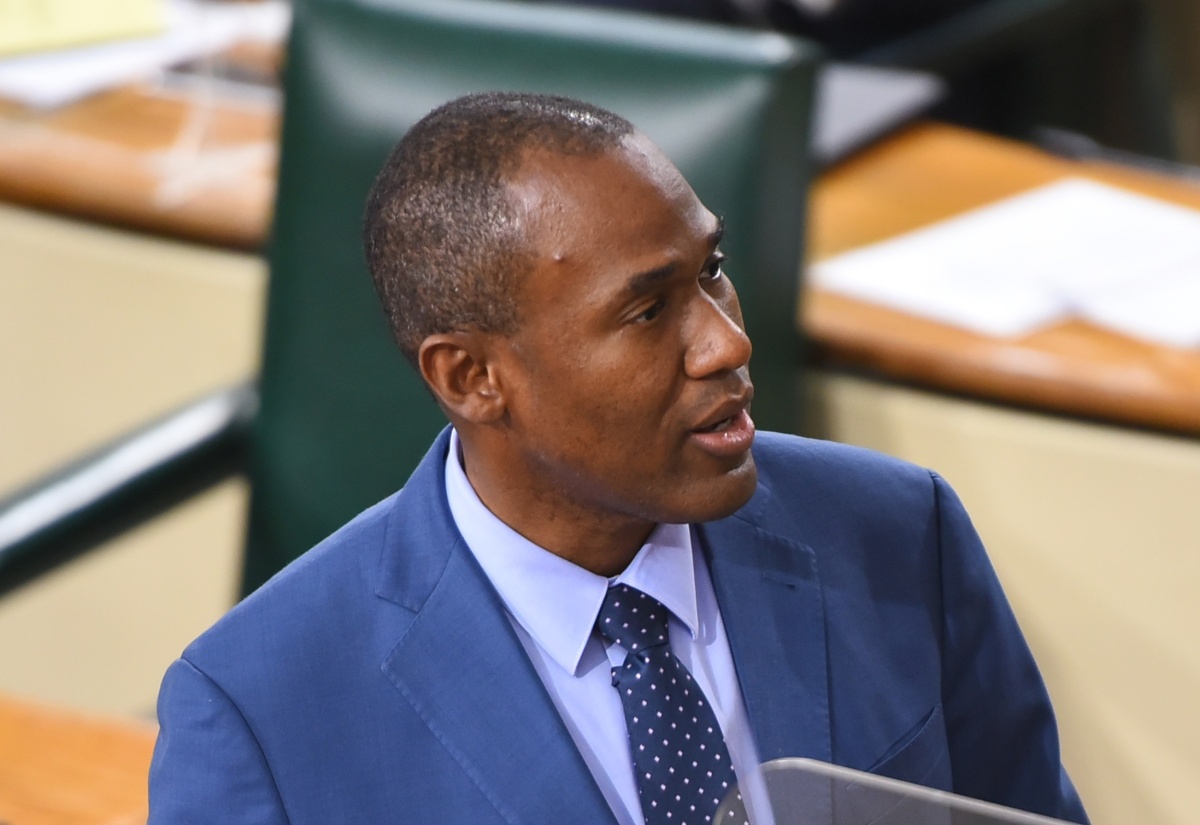Jamaica's Economic Resilience: FINSAC Commission Archives
The imminent launch of the FINSAC (Financial Sector Adjustment Company) Commission Archives, set to be launched at the National Gallery of Jamaica on October 16, 2024, marks a pivotal moment in Jamaica’s economic narrative. This initiative provides an essential resource for understanding the challenges and reforms that shaped the nation during a tumultuous financial period in the late 1990s. It highlights the importance of historical context in shaping current economic policies and serves as a vital tool for informing Jamaica’s path toward sustainable growth and resilience.

Minister of Finance and the Public Service, Dr. the Hon. Nigel Clarke.
Historical Context: The FINSAC Era
The late 1990s were a tumultuous time for Jamaica’s economy. After years of macroeconomic instability, characterized by high inflation, fiscal deficits, and a burgeoning public debt, the Jamaican financial sector faced a crisis that threatened to undermine the entire economy. A series of bank failures and the insolvency of numerous financial institutions resulted in widespread public distrust and a loss of savings for many Jamaicans.
In response to this crisis, the government established FINSAC in 1997, tasked with stabilizing the financial system, restructuring insolvent institutions, and restoring public confidence. FINSAC’s primary mandate was to manage the assets and liabilities of failing financial institutions, facilitating their eventual recovery or orderly dissolution. The initiative was fraught with challenges, including high operational costs and public scrutiny over the management of taxpayer funds.
The FINSAC period highlighted the critical need for structural reforms within the financial sector and the broader economy. The government's approach involved a comprehensive strategy that included the consolidation of banks, the introduction of stricter regulatory frameworks, and significant public sector reforms. These efforts aimed to create a more resilient financial system capable of withstanding future shocks.
The Relevance of the FINSAC Archives
The FINSAC Commission Archives will serve as a repository of documents and records from the FINSAC era. As stated by Minister of Finance and the Public Service, Dr. Nigel Clarke, this initiative represents an important step in ensuring transparency and accountability in Jamaica's economic history. The archives will provide valuable insights into the governance, decisions, and outcomes of the FINSAC process, making it a vital resource for researchers, policymakers, and the public.
The archives will document the successes and failures of the FINSAC initiative, providing insights into the lessons learned from this pivotal period. Among the key reforms implemented were measures to strengthen the regulatory framework governing financial institutions, enhance transparency, and improve the oversight capabilities of the Bank of Jamaica.
One notable outcome of the FINSAC era was the establishment of a more robust regulatory environment, which has evolved significantly in the years since. These reforms included the adoption of international banking standards, such as Basel III, and improved mechanisms for monitoring financial institutions. The emphasis on regulatory oversight has helped to ensure that the financial sector remains stable, resilient, and better prepared to navigate potential crises.
Relevance to Current Economic Climate
The significance of the FINSAC archives is amplified in light of Jamaica's recent economic achievements. In September 2023, Standard and Poor’s upgraded Jamaica's credit rating from ‘B+’ to ‘BB-’, marking the highest rating the country has received since S&P began assessing Jamaica’s sovereign debt in 1999. This upgrade reflects the ongoing decline in the debt-to-GDP ratio, driven by prudent fiscal policies and a commitment to reducing public debt.
Furthermore, the International Monetary Fund (IMF) recently concluded its 2024 Article IV consultation with Jamaica, praising the government's efforts to achieve macroeconomic stability and institutional reforms. With a focus on fiscal responsibility, Jamaica has successfully navigated post-pandemic recovery, resulting in declining inflation and a record-low unemployment rate of 4.5% by mid-2023. The archives will serve as a crucial reference point as Jamaica continues to strengthen its financial system and economic foundations.
Building Resilience: Future Implications
As Jamaica charts its course for the future, the FINSAC archives will play an essential role in informing policy decisions and building resilience against global economic shocks. The lessons learned from the past will guide current efforts to address emerging challenges, such as climate change and geopolitical uncertainties.
The archives will provide insights into the importance of having a well-capitalized and liquid financial system, which is vital for responding to external pressures. By reflecting on the past, Jamaica can enhance its preparedness for potential crises, ensuring that the financial sector remains robust and capable of supporting sustainable economic growth.
Moreover, the archives will encourage a culture of learning and adaptation within the Jamaican government and financial institutions. By understanding the historical context of past reforms and their impacts, policymakers can develop targeted strategies that address contemporary issues while remaining aligned with long-term economic goals.
Conclusion
The launch of the FINSAC Commission Archives is a significant step toward acknowledging Jamaica’s economic history and the lessons learned from a challenging period. As the nation continues to experience positive developments in credit ratings and fiscal health, the archives will serve as a valuable resource for understanding the complexities of economic reform and the importance of resilience.
By preserving this historical knowledge, Jamaica is not only honoring its past but also equipping itself with the tools needed to navigate the future. The FINSAC archives will stand as a testament to the country’s commitment to transparency, accountability, and informed policymaking, ultimately paving the way for a more prosperous and resilient Jamaica.
References:
- Jamaica Information Service. (2024). "FINSAC Commission Archives to Be Launched." [JIS Article]
- International Monetary Fund. (2024). "IMF Executive Board Concludes 2024 Article IV Consultation and Second Reviews Under the Precautionary and Liquidity Line and Under the Resilience and Sustainability Facility Arrangements with Jamaica." [IMF Article]
- Ministry of Finance and the Public Service, Jamaica. (2023). "S&P Upgrades Jamaica from ‘B+’ to ‘BB-’, Outlook Remains Stable." [MoF Press Release]
- International Monetary Fund. (1999). "Jamaica: Selected Economic Indicators." [IMF Article]
- Kirkpatrick, C., & Tennant, D. (2002). "Responding to Financial Crisis: Better Off Without the IMF? The Case of Jamaica." [ScienceDirect Article]
